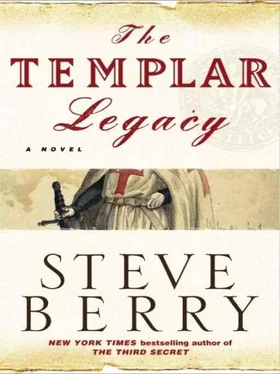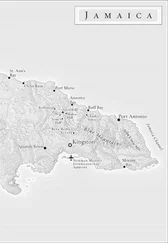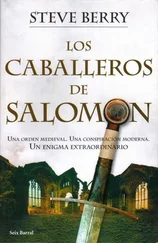Steve Berry - The Templar legacy
Здесь есть возможность читать онлайн «Steve Berry - The Templar legacy» весь текст электронной книги совершенно бесплатно (целиком полную версию без сокращений). В некоторых случаях можно слушать аудио, скачать через торрент в формате fb2 и присутствует краткое содержание. Жанр: Триллер, на английском языке. Описание произведения, (предисловие) а так же отзывы посетителей доступны на портале библиотеки ЛибКат.
- Название:The Templar legacy
- Автор:
- Жанр:
- Год:неизвестен
- ISBN:нет данных
- Рейтинг книги:5 / 5. Голосов: 1
-
Избранное:Добавить в избранное
- Отзывы:
-
Ваша оценка:
- 100
- 1
- 2
- 3
- 4
- 5
The Templar legacy: краткое содержание, описание и аннотация
Предлагаем к чтению аннотацию, описание, краткое содержание или предисловие (зависит от того, что написал сам автор книги «The Templar legacy»). Если вы не нашли необходимую информацию о книге — напишите в комментариях, мы постараемся отыскать её.
The Templar legacy — читать онлайн бесплатно полную книгу (весь текст) целиком
Ниже представлен текст книги, разбитый по страницам. Система сохранения места последней прочитанной страницы, позволяет с удобством читать онлайн бесплатно книгу «The Templar legacy», без необходимости каждый раз заново искать на чём Вы остановились. Поставьте закладку, и сможете в любой момент перейти на страницу, на которой закончили чтение.
Интервал:
Закладка:
He began to understand. "The Romans would not have done that."
"This is where the story gets complicated. Jesus was condemned to death with the Sabbath only a few hours away. Yet He's ordered to die by crucifixion, one of the slowest ways to kill a person. How could anyone think He'd be dead before nightfall? Mark's Gospel says even Pilate was puzzled by such a quick death, asking a centurion if everything was in order."
"But wasn't Jesus mistreated before He was nailed to the cross?"
"Jesus was a strong man in the prime of his life. He was accustomed to walking great distances in the heat. Yes, he endured the scourge. According to law, thirty-nine lashes were to be given. But we're not told anywhere in the Gospels if this number was administered. And after his torment, he was apparently strong enough to address His accusers in a forcible way. So little evidence exists of any weakened condition. Yet Jesus dies in a mere three hours-without His legs being broken-His side supposedly pierced by a lance."
"The prophecy from Exodus. John speaks of it in his Gospel. He said all those things happened so Scripture would be fulfilled."
"Exodus speaks of Passover restrictions and that none of the meat may be taken outside the house. It had to be eaten within one house with no broken bones. That has nothing to do with Jesus. John's reference to it was a weak attempt at continuity with the Old Testament. Of course, as I said, the other three Gospels never even mention the lance."
"I assume your point, then, is that the Gospels are wrong."
"None of the information contained within them makes sense. They contradict not only themselves, but history, logic, and reason. We're left to believe that a crucified man, without His legs broken, died within three hours, and was then afforded the honor of being buried. Of course, from a religious standpoint it makes perfect sense. Early theologians were attempting to attract followers. They needed to elevate Jesus from a man to the god Christ. The gospel writers all wrote in Greek and would have known their Hellenic history. Osiris, the consort of the Greek god Isis, died at the hands of evil on a Friday, then was resurrected three days later. Why not Christ, too? Of course, for Christ to physically rise from the dead, there would have to be an identifiable body. No bones picked clean by birds and tossed into a common grave would do. Hence, the burial."
"This is what Lars Nelle was trying to prove? That Christ did not rise from the dead?"
She shook her head. "I have no idea. All I know is that the Templars knew things. Important things. Enough to transform a band of nine obscure knights into an international force. Knowledge was what fueled that expansion. Knowledge that Sauniere rediscovered. I want that knowledge."
"How could there be any proof of anything, one way or another?"
"There must be. You've seen Sauniere's church. He left a lot of hints, and they all point in one direction. There must be something out there-enough to convince him to keep the Templars looking."
"We're dreaming."
"Are we?"
He noticed that evening had finally dissolved into darkness, the surrounding hills and forest a mass of silhouette.
"We have company," she whispered.
He waited for her to explain.
"On the ride, I worked my way up one of the promontories. I spotted two men. One to the north, the other south. Watching. De Roquefort found you quickly."
"I didn't think the trick with the transponder would slow him down long. He'd assume we'd come here. And Claridon would show him the way. They spot you?"
"I doubt it. I was careful."
"This could get dicey."
"De Roquefort is a man in a hurry. He's impatient, particularly if he feels cheated."
"You mean the journal?"
She nodded. "Claridon will know it's riddled with mistakes."
"But de Roquefort found us. We're within his sights."
"He must know precious little. Otherwise, why bother? He'd simply use his resources and search himself. No, he needs us."
Her words made sense, as had everything else she'd said. "You rode out expecting them, didn't you?"
"I thought we were being watched."
"You always so suspicious?"
She faced him. "Only when people mean to hurt me."
"I assume you've considered a course of action?"
"Oh, yes. I have a plan."
FIFTY-ONE
DE ROQUEFORT SAT BEFORE THE ALTAR IN THE MAIN CHAPEL, dressed once more in his formal white cassock. The brothers filled the pews before him, chanting words that dated back to the Beginning. Claridon was in the archives, poring through documents. He'd instructed the archivist to allow the impish fool access to whatever he requested-but also to keep a close watch over him. The report from Givors was that Cassiopeia Vitt's chateau seemed down for the night. One brother watched the front, another the rear. So while little else could be done, he decided to tend to his duties.
A new soul was about to be welcomed into the Order.
Seven hundred years ago, any initiate would have been of legitimate birth, free of debt, and physically fit to wage war. Most were celibates, but married men had been allowed honorary status. Criminals were not a problem, nor were excommunicates. Both were allowed redemption. Every master's duty had been to ensure that the brotherhood grew. Rule made clear, If any secular knight, or other man, wishes to leave the mass of perdition and abandon this century, do not deny him entry. But it was St. Paul's words that had formed the modern standard for induction. Approve the spirit if it comes from God. And the candidate kneeling before him represented his first attempt to implement that dictate. It disgusted him that such a glorious ceremony was forced to take place in the dead of night behind locked gates. But such was the way of the Order. His legacy-what he wanted noted in the Chronicles long after his death-would be a return to the light.
The chanting stopped.
He stood from the oak chair that had served since the Beginning as the master's perch.
"Good brother," he said to the candidate, who knelt before him, hands on a Bible. "You ask a great thing. Of our Order, you see only the facade. We live in this resplendent abbey, we eat and drink well. We have clothes, medicine, education, and spiritual fulfillment. But we live under harsh commandments. It is hard to make yourself the serf to another. If you wish to sleep, you may be awakened. If you are wakeful, you may be ordered to lie down. You may not want to go where directed, but you must. You will hardly do anything that you wish. Can you suffer well these hardships?"
The man, probably in his late twenties, his hair already cropped short, his pale face clean-shaven, looked up and said, "I will suffer all that is pleasing to God."
He knew that the candidate was typical. He'd been found at university several years ago, and one of the Order's precepts had monitored the man's progress while learning the family tree and personal history. The fewer attachments, the better, and thankfully the world abounded with drifting souls. Eventually, direct contact was made and, being receptive, the initiate was slowly schooled in Rule and asked the questions candidates had been asked for centuries. Was he married? Engaged? Had he ever made a vow or pledge to another religious society? Any debts he could not pay? Any hidden illnesses? Was he beholden to a man or woman for any reason?
"Good brother," he said to the candidate, "in our company, you must not seek riches, nor honor, nor bodily ease. Instead, you must seek three things. First, renounce and reject the sins of this world. Second, do the service of our Lord. And third, be poor and penitent. Will you promise to God and our Lady that all the days of your life you will obey the master of this Temple? That you will live in chastity, without personal property? That you will uphold the customs of this house? That you will never leave this Order, neither through strength nor weakness, in worse times nor better?"
Читать дальшеИнтервал:
Закладка:
Похожие книги на «The Templar legacy»
Представляем Вашему вниманию похожие книги на «The Templar legacy» списком для выбора. Мы отобрали схожую по названию и смыслу литературу в надежде предоставить читателям больше вариантов отыскать новые, интересные, ещё непрочитанные произведения.
Обсуждение, отзывы о книге «The Templar legacy» и просто собственные мнения читателей. Оставьте ваши комментарии, напишите, что Вы думаете о произведении, его смысле или главных героях. Укажите что конкретно понравилось, а что нет, и почему Вы так считаете.











